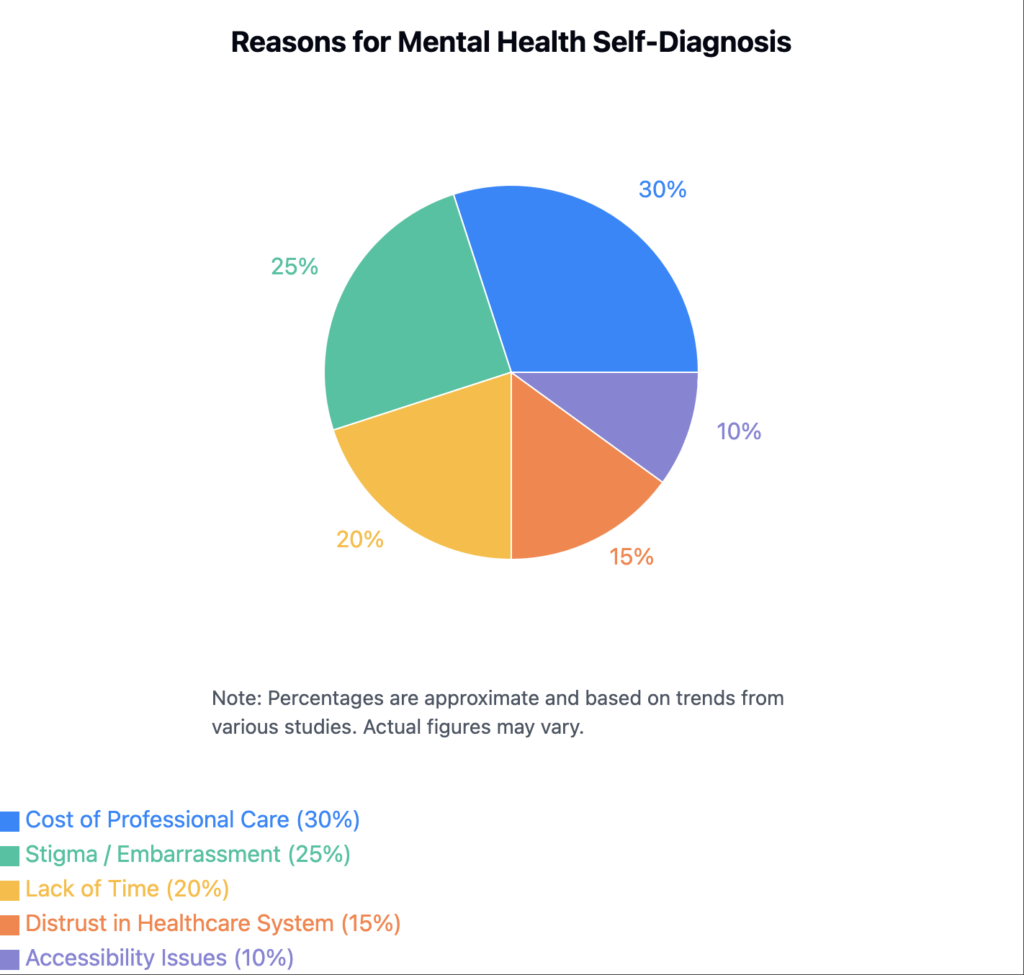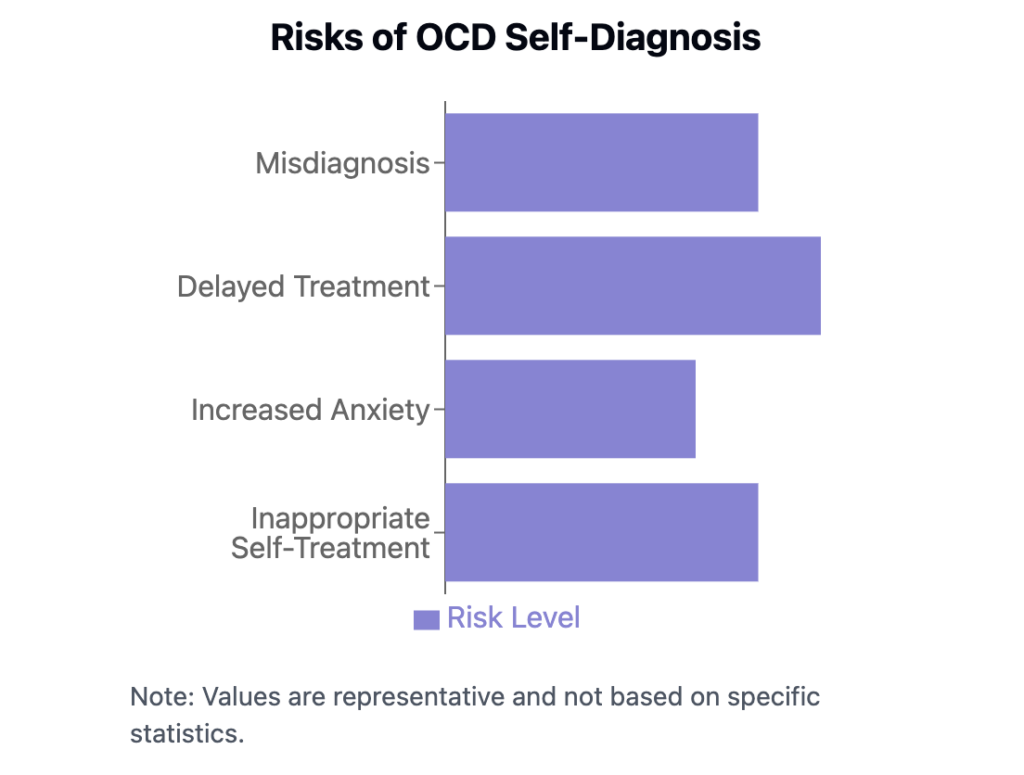Introduction
Obsessive-Compulsive Disorder (OCD) is a complex mental health condition that affects millions of people worldwide. With increased access to information online, many individuals have turned to self-diagnosis as a means of understanding their symptoms. This article explores the various aspects of self-diagnosis for OCD, including its validity, potential benefits, risks, and safe approaches to self-assessment.
Is Self-Diagnosis Valid?
Self-diagnosis of OCD can be a double-edged sword. While it can provide initial insights, it’s important to understand its limitations:
Pros:
- Raises awareness about one’s symptoms
- Can be a first step towards seeking professional help
- May provide temporary relief through understanding
Cons:
- Lacks professional expertise and objectivity
- May lead to misdiagnosis due to symptom overlap with other conditions
- Cannot replace a comprehensive clinical assessment
Use Cases Where Self-Diagnosis Might Work
Self-diagnosis can be beneficial in certain scenarios:
- Initial awareness: Recognizing patterns in one’s behavior that align with OCD symptoms
- Preparation for professional consultation: Gathering information to discuss with a mental health professional
- Support seeking: Finding appropriate support groups or resources
- Remote areas: When immediate access to mental health professionals is limited

Potential Harm of Self-Diagnosis
While self-diagnosis can be a starting point, it comes with risks:
- Misdiagnosis: Incorrectly attributing symptoms to OCD when another condition may be present
- Delayed treatment: Relying solely on self-diagnosis may postpone necessary professional intervention
- Anxiety and stress: Obsessing over symptoms can exacerbate anxiety
- Inappropriate self-treatment: Attempting to manage OCD without proper guidance can be ineffective or harmful

Safe Ways to Conduct a Self-Assessment
If you’re considering a self-assessment for OCD, follow these guidelines:
- Use reputable sources: Rely on information from recognized mental health organizations and institutions
- Take validated screening tools: Use online assessments developed by mental health professionals
- Keep a symptom journal: Document your thoughts, behaviors, and their impact on your daily life
- Avoid self-diagnosis as a final conclusion: View it as a step towards professional help
- Consult with others: Discuss your concerns with trusted friends or family members for perspective
Consulting with Professionals
After a self-assessment, it’s crucial to consult with a mental health professional:
- Prepare for the appointment: Bring your symptom journal and screening results
- Be honest and thorough: Provide a complete picture of your experiences
- Ask questions: Seek clarification about the diagnosis, treatment options, and prognosis
- Follow-up: Adhere to the recommended treatment plan and maintain open communication with your provider
Options for Those on a Low Budget
Mental health care can be expensive, but there are options for those with limited financial resources:
- Community health centers: Offer sliding scale fees based on income
- University clinics: Provide low-cost therapy with supervised graduate students
- Online therapy platforms: Some offer more affordable options than traditional in-person therapy
- Support groups: Many are free and can provide valuable peer support
- Employee Assistance Programs (EAPs): If employed, check if your company offers free counseling sessions
- Nonprofit organizations: Some specialize in providing low-cost mental health services
Conclusion
While self-diagnosis of OCD can be a starting point for understanding one’s mental health, it should not replace professional diagnosis and treatment. Use self-assessment tools cautiously, and always seek guidance from qualified mental health professionals. Remember, proper diagnosis and treatment are crucial for managing OCD effectively and improving quality of life.
